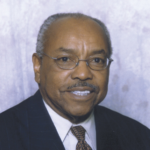As we celebrate the birthday of Rev. Dr. Martin Luther King, Jr., I reflect on what he stood for, and how his life and achievements affect us all as Americans.
My first memories of Dr. King are as a high school student with the bus boycott, where everybody young and old worked for more than a year. After that, I passed his home twice a day as I walked three miles from home to Alabama State University for two years. How was I to know that 10 years later, he would become a household name around the world?
It seems that every special interest group uses his words to fit their own cause. Liberal or conservative, black or white, invoking Dr. King’s name seems to be a tactic used by individuals and groups to convince people that Dr. King would support their cause if he were still alive today.
Even within the King family there is disagreement about whose side Dr. King would have taken, on the gay rights issue for example. According to a recent story in the Financial Times, one member of the family said he would have marched for gay rights. But a daughter marching with another minister in Atlanta said he would not have.
When many of us think of Dr. King, we focus on his 1963 “I Have A Dream” speech, as though the words in that speech reflect the only dream he had. King was a spiritual leader who had many beliefs. He expressed some of them in his “Letter from the Birmingham Jail” and in Where Do We Go From Here.” He expressed his views on education when he said, “The discrimination of the future will not be based on race but on education. Those without education will find no place in our highly sophisticated, technical society.”
Unfortunately, in this rush to fight for our own causes and invoke the power of Dr. King, the man’s own agenda too often gets tossed aside. A closer look at his life and legacy tell us he had so much more to say than just dreaming. Dreaming doesn’t call for leadership, and without a doubt he was a leader.
At the age of 26, King received a Ph.D. in systematic theology from Boston University. To fight for your dreams, you must be equipped to do battle. Before the dream can come true, quality education must be offered to every American child–regardless of race.
Today, virtually every group in America that could possibly be discriminated against has fought to become a protected class and complains about injustice. But Dr. King wasn’t a complainer. He was a leader who realized that to get to an end, we must first make a commitment to the means. King, in the end, was about “racial freedom, economic justice, and Christian love.”
Lee H. Walker ([email protected]) is the president of one of the nation’s leading black public policy think tanks, The New Coalition for Economic & Social Change. He is also a member of the editorial board at The Chicago Defender, the nation’s only daily black newspaper.



